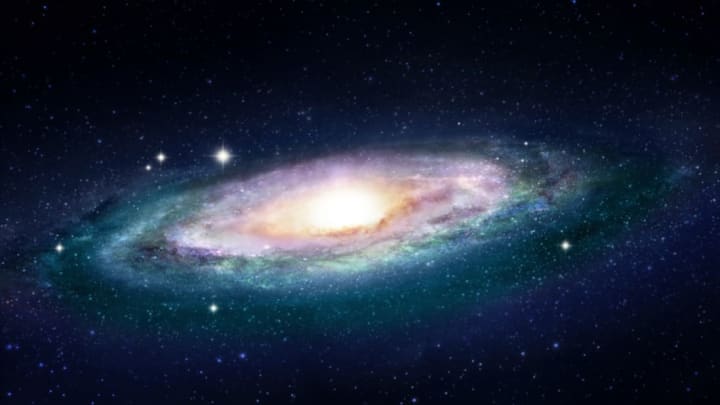To the horror of mothers everywhere, there is scientific evidence that you are, in fact, the center of the universe. We all are, actually. That’s because, depending on how you interpret some key cosmological axioms, the center of the universe is everywhere. Or, well, nowhere.
Evidence you are the center of the universe
In the 1920s, Edwin Hubble discovered galaxies outside of the Milky Way. It was shocking news back then, but the takeaway was more startling. All of those galaxies were moving away from us—the universe was expanding. In 1933, Arthur Milne introduced his take on the cosmological principle, stating that no matter where you are in space, the expansion of the universe will always appear the same. And that, in a way, makes you the center of the universe.
To make sense of this, imagine the universe as a balloon. The planets and the galaxies, however, are not trapped inside the balloon; rather, they rest on the balloon’s surface. Got that?
Now pretend you’re standing on the surface of the balloon with a bunch of other people scattered around. If the balloon were inflated, all the people would appear to expand away from you. Meanwhile, it’d appear that you’re still standing in the same place (after all, you haven’t moved from your spot). However, to someone else on the balloon, you’re the one who’s running away and they’re the one staying put. The universe is kind of like that.
(This is tough to visualize. If you’re having trouble, this handy interactive graph can help.)
The point is, whenever you observe the expanding universe, it will always seem like everything is retreating from you. No matter who you are or where you are, it will always appear that you’re the unmovable center. As a result, the center of the universe can be everywhere.
Evidence you aren’t the center of the universe
The universe, though, is a pinch more complicated than an inflatable rubber balloon from the dollar store. One point is obvious to anyone who has ever blown up a balloon—the surface of a balloon has no “center.” Ditto for the cosmos.
But what about the Big Bang? Wouldn’t that count as a starting point? Actually, no. Unlike a firecracker or a bomb, which have clear epicenters, the Big Bang was not your average explosion. There was no time or space before the Big Bang. The explosion did not happen somewhere in space—it was an explosion of space itself. There can’t be a center if there was no space to start with, Research on cosmic microwave background radiation supports this.
There you have it. The center of the universe is either everywhere or nowhere. Of course, you could just move to Wallace, Idaho—the town officially dubbed “The Center of the Universe.” They make a pretty strong case for themselves.
